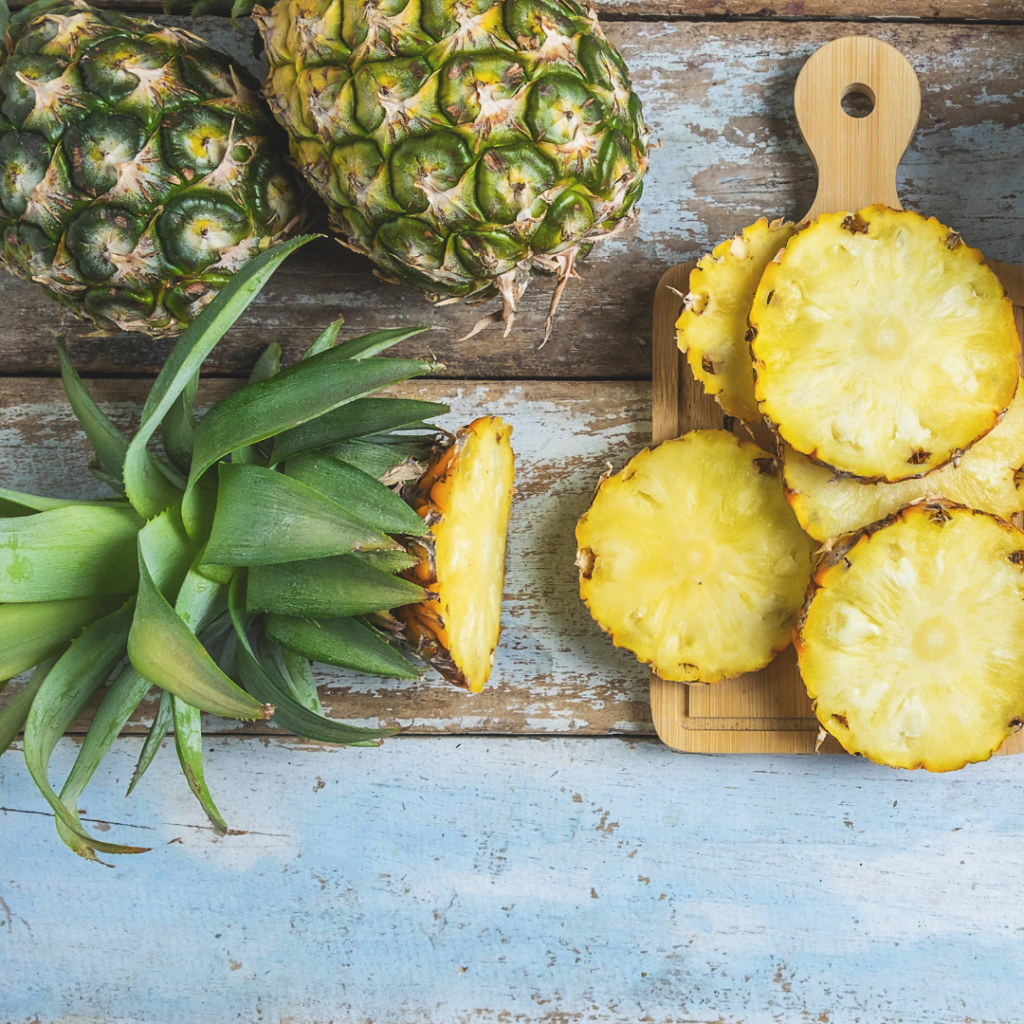
If you’re like us and have enjoyed your fair share of pineapple you’re probably no stranger to the tingling effect it can have on your tongue and lips.
While it may be concerning to some, it doesn’t always indicate an allergy. There is actually a scientific explanation for what causes this sensation and a few ways to prevent it.
Causes of Tingling and Numbness
One contributing factor to the tingly-ness and numbness that occurs after eating pineapple is the acidity of the fruit which is due to its high Vitamin C content.
The main cause is a group of enzymes called bromelain that are found in pineapple juice and the stem. Bromelain removes molecules on the service of cells which causes your mouth to feel raw and numb. This sensation can be particularly annoying when consuming pineapple that is especially high in Vitamin C. However, this enzyme is actually a beneficial component of consuming the fruit as it helps the body to fight against inflammation.

How to Minimize the Effects
One option to reduce irritation is to cook or bake with pineapple (baking them in dishes, or using lime juice to cold cook are great ways take down the tingle factor!).
If you’d like to continue enjoying fresh pineapple and reduce tingling, we recommend waiting for your pineapple to reach peak ripeness. A key indicator of a ripe pineapple is the tropical, sweet aroma. Additionally, consuming this delicious fruit in smaller quantities rather than large amounts in a single sitting will significantly reduce the negative effects of the bromelain.
Considerations
Although it is normal to experience this odd oral sensation, check with your doctor about potential reactions between pineapple and any medications or allergen concerns you may have.
To get Chestnut Hill Farms news and updates delivered to your inbox, sign up for our newsletter.


